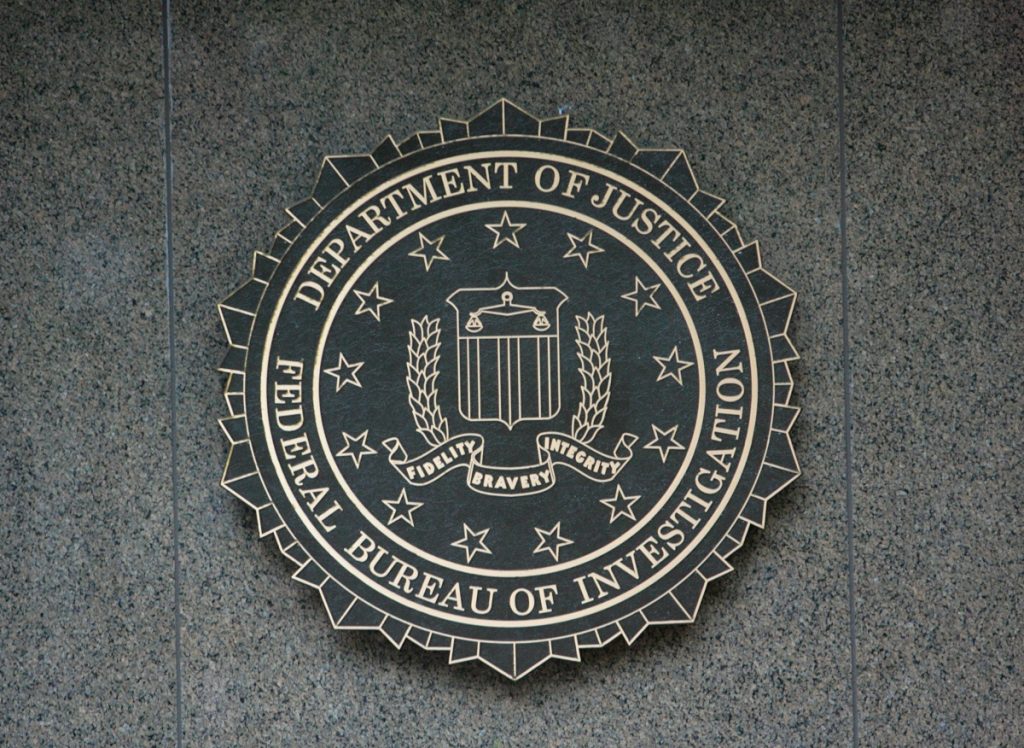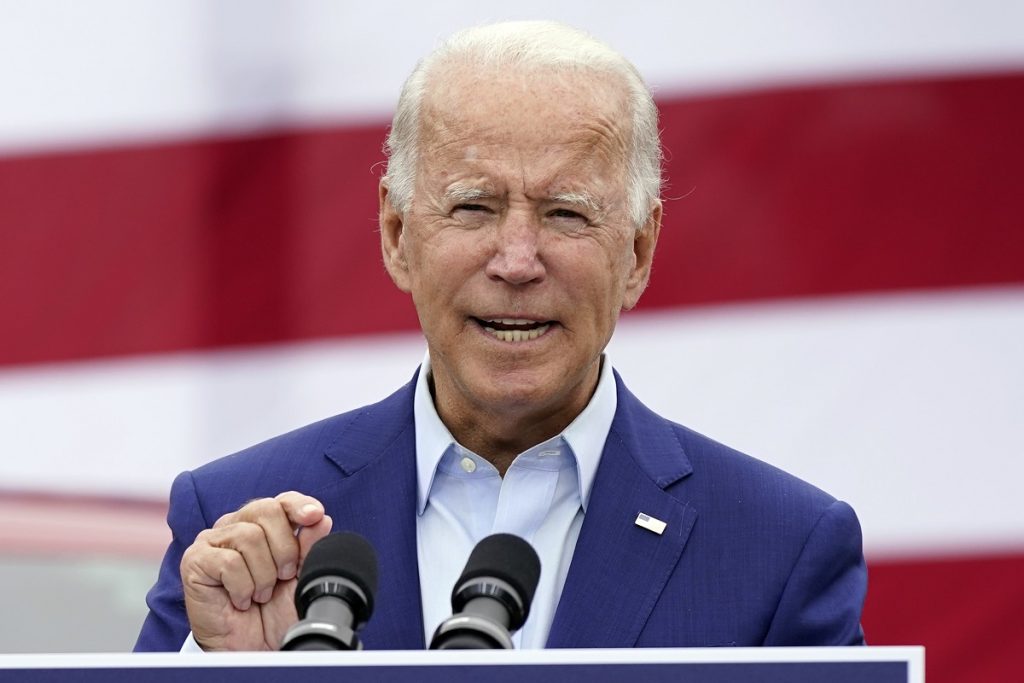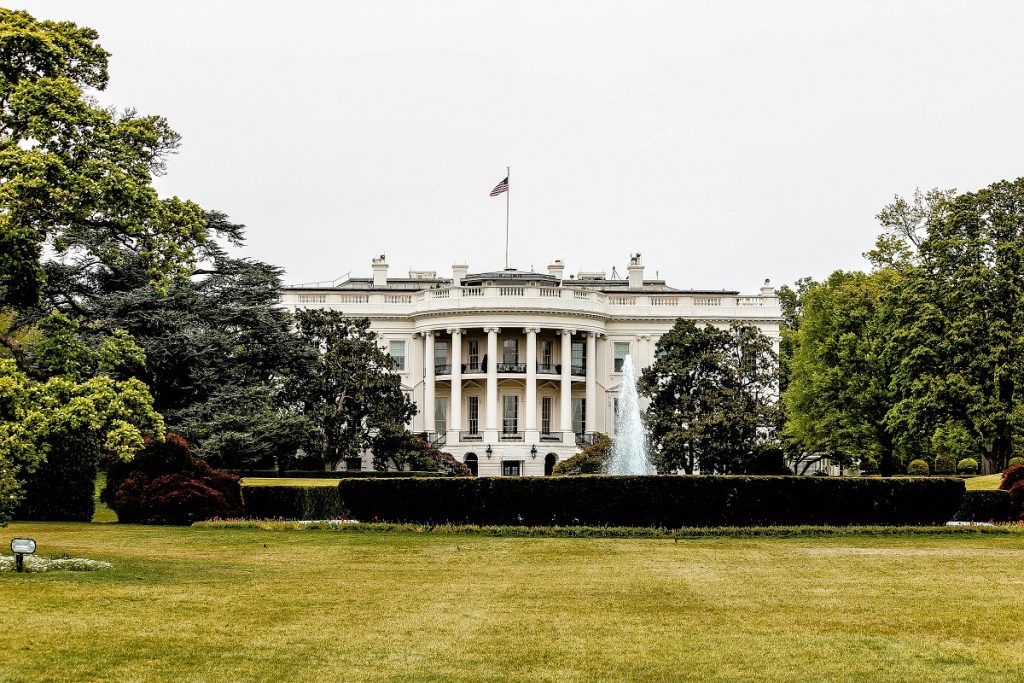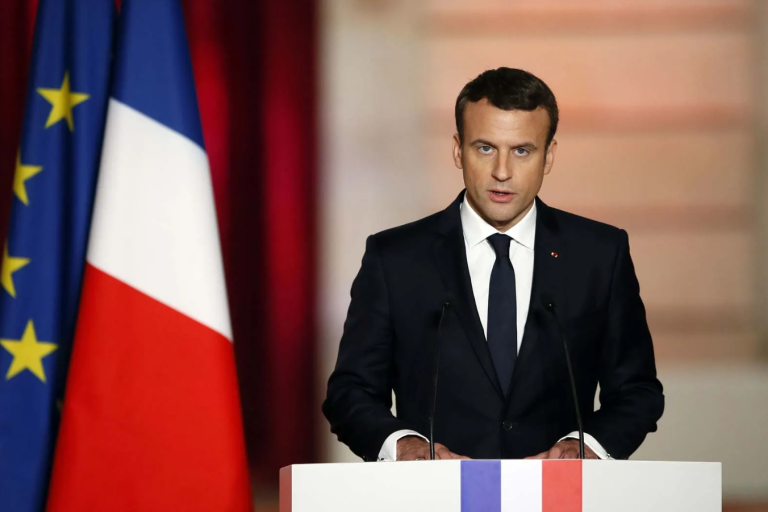
“Democratic” U.S. vs. “authoritarian” Saudi Arabia
The campaign against Saudi Arabia, which has been very hostile to the Democratic administration since 2021, is gaining momentum in the U.S. and is now showing signs of entering into a political and military coalition with China and Russia, which already goes beyond the Republican-Democratic “peaceful” competition outside America.
First, the FBI “declassified” a video of a Saudi man accused of working for Riyadh’s intelligence services. In the video, he walked near the Capitol building and discussed a certain “plan” in the summer of 1999, which was a hint at the participation of the Saudis in the preparation of terrorist attacks in 2001 in New York. It is believed that one of the hijacked planes on Sept. 11, Flight 93, was supposed to crash into the Capitol building. But passengers forced their way into the cockpit, a fight with terrorists ensued, and the plane crashed in the fields of Pennsylvania. The videotape was classified for more than 20 years. At the same time, the FBI accused one of the Saudi princes of having contact with terrorists in San Diego, who then crashed the hijacked plane into the Pentagon building. And in 2021, the White House accused Saudi diplomats in California of helping the organizers of the 9/11 attacks.

U.S. relations with Saudi Arabia are steadily deteriorating. Biden’s team is outraged by Riyadh’s decision to cut oil production within the framework of OPEC+, which raised fuel prices in the United States. In addition, Saudi Arabia is actively establishing cooperation with Moscow and Beijing. Riyadh may even start buying Russian and Chinese weapons to replace American ones. Negotiations with Washington on the establishment of diplomatic relations between Saudi Arabia and Israel, coupled with an end to the war in Gaza, are very difficult. The White House is blackmailing Riyadh with dirt about the events of 9/11 and supporting the lawsuits of relatives of the victims of the terrorist attack against the Saudi authorities. However, this only leads to a crisis in relations and Riyadh’s drift away from the United States.
Riyadh has begun to defiantly increase cooperation with China amid a campaign against Saudi Arabia in the United States. Beijing hosted talks on defense and national security with the participation of the Saudis. The matter may eventually come to the purchase of Chinese arms. Riyadh wants to enlist China’s support to resolve the crisis with the Houthis as the Middle Kingdom has good contacts with Iran, the “chief” of the Yemenis. Last year, China already helped in the normalization of relations between Tehran and Riyadh.
The Chinese will be proactive in the Middle East, filling the vacuum of influence the U.S. is leaving behind. The lion’s share of Iranian, as well as Saudi oil, goes to the Chinese market. There are talks of oil trade in yuan, as well as the future reconstruction of Gaza with Beijing’s participation. In addition, the Chinese want to enter the arms market of the Gulf monarchies, advertising their drones and the fifth-generation fighter FC-31, an analog of the American F-35. U.S. military corporations are finding it increasingly difficult to hold on to the Middle East market, and Raytheon has already pulled out of a $25 billion project to build an air defense system for Riyadh. That is why the U.S. began to accuse Saudi intelligence agencies of organizing the 9/11 attack, and the crisis in relations with Riyadh has worsened amid the war in Gaza and decisions to cut oil production. Biden managed to do the “impossible”, and in four years collapse the 50-year old “oil dollar” system. Now the Americans are reaping the consequences of a sharp weakening of their position in the Middle East.

The final disengagement between the U.S. and the KSA began in June 2022, when Joe Biden paid an official visit to Riyadh. At the time, many liberals in the U.S. were outraged that Biden had gone to bow to Crown Prince bin Salman on principle, and criticized him even within his own party. In the end, he still had to assure the public that he had raised the issue of the murder of Saudi “democratic” journalist Khashoggi by Arab intelligence services in Turkey. But this has already met with incomprehension among those who expected Biden to conclude agreements with Saudi Arabia. At the same time, Riyadh has responded evasively to requests to increase oil production, blaming the West for the fuel crisis.
According to the Saudis, the underfunding of the industry has led to the U.S. simply not having enough refinery capacity to produce fuel, and increasing the supply of oil will not fix that. The Saudis have politely accepted Biden’s offers to unite against Iran, which is their strategic adversary in any situation. However they are tuning in to work with the next U.S. president, whom they see as Donald Trump, who is loyal to them.
Biden himself was called “weakened and humiliated” in Riyadh, implying that he had already become a “lame duck” for them. Washington assessed Biden’s Middle East visit as unsuccessful, if not a complete failure. Biden failed to secure firm assurances from Riyadh to increase oil production; the Saudis only promised to improve their capacity to produce up to 13 million barrels per day by 2027. Nor was Biden able to conclude agreements on a military alliance between Saudi Arabia and Israel. Although the countries were gradually restoring their relations, they were not ready to create a real alliance, and after the outbreak of war in the Gaza Strip, it is safe to put a cross on it.

At the same time, the reputational damage for Biden was impressive. The Saudis pointed out his double standards, reminding him of the Abu Ghraib prison, where U.S. soldiers abused Iraqis. It was also telling that Biden, unlike Trump, was not greeted by the crown prince at the plane ramp or seen off. Riyadh views him as a political enemy. Even if Trump becomes president again in 2024, relations might improve, but it is unlikely that the U.S. will be able to fully repair the damage done by Biden.
In addition, Saudi Arabia was also irritated by Washington’s too “warm” relations with Iran and Qatar, which is not only a conduit of Ankara and Tehran’s interests, but also the Saudis’ main enemy in the struggle for ideological leadership in Salafism. Qatari lobbyists have wrapped their tentacles around Congress and the Biden administration. Only three months into the war in the Middle East, Western intelligence suddenly woke up and began asking questions about Qatar’s role in supporting Hamas and orchestrating the attack on Israel. Qatar is a key sponsor of Hamas, whose headquarters are in Doha. Qatar also had an obvious motive: to end the Abraham Accords between KSA and Israel. Riyadh wanted to create a transportation corridor from India through Israel to Europe, through which energy could be supplied. This directly affected Qatar’s gas interests, and suddenly the war with Israel began, which buried the project.
But despite the existence of motive and ties with Hamas, no one directly criticizes Qatar. Washington is trying to shift responsibility to long-demonized Iran, which has “nothing to lose,” but they do not mention Qatar. On the contrary, it is through Qatar that negotiations between the CIA, Mossad and Hamas are taking place. It is true that today the negotiations have reached an impasse, and this may also be in Doha’s interest. This way it is possible to play the role of mediator longer and at the same time to increase gas supplies to Europe or to prolong for 10 years the maintenance of the Pentagon’s central command base in Qatar. In addition, Doha is buying up politicians in London, Brussels and Washington in bulk. In the U.S., the Qatari lobby works closely with the Republicans, who may come to power in 2024.

By the end of 2023, Congress suddenly woke up and demanded that the White House increase pressure on Qatar because Doha openly sponsors Hamas. Lawmakers began threatening Qatar with a severe deterioration of relations with the U.S. if it did not help release prisoners in Gaza. No doubt that Qatar is one of the key partners of the U.S. outside NATO, and the U.S. CENTCOM, which is in charge of all U.S. operations in the Middle East, is located also in Qatar. In addition, Qatar is a major investor in Western economies, including keeping the U.S. debt market afloat. That is why Qatar manages to avoid serious problems and act as an arbitrator. The White House is also simply afraid to quarrel with Doha, because it has already ruined relations with Saudi Arabia and the UAE.
Against the backdrop of the war in Gaza, as many as 96% of Saudis began to oppose cooperation with Israel, crippling U.S. attempts to preserve the Abraham Accords. The situation in Gaza continued to deteriorate, and Washington simply ignored it. At the same time, Israel was publicly willing to continue the operation, even though every week of the war was very expensive. Already 30,000 Israeli companies have gone bankrupt, and 20% of the entire workforce has been mobilized for the war in Gaza.
The White House can’t even resolve the situation in the Red Sea, and the Pentagon is already complaining that for every $2,000 drone fired by the Houthis , they have to spend a million-dollar missile. Biden’s team is trying to negotiate past the Houthis with Iran, but to no avail. All that remains is a desperate search for culprits amidst the complete dysfunction of the White House, which is why the U.S. is not the most favorable ally for Saudi Arabia right now.

This is largely the reason why OPEC+ countries, where Saudi Arabia is the clear leader, lowered their oil production quotas as early as 2023. The first decisions to cut oil exports in 2022 caused a shock in Washington. Biden’s apparatchiks even called them a declaration of war on the U.S. economy. Since then, oil production has only decreased, and today in the U.S. it is already causing only apathetic discontent because Washington has fewer and fewer real levers of pressure on the Gulf monarchies.
Biden’s team was still trying to de-escalate Iran through Riyadh, providing it with multibillion-dollar subsidies in exchange for its refusal to bomb U.S. bases. Washington only had to nervously follow the rising fuel prices in the U.S., while the strategic oil reserves were already emptied by Biden’s efforts. And then Brazil announced its readiness to join OPEC+. By that time it had already become the fourth largest oil producing country in the world and exports oil mainly to China and the U.S. So now, if Congress again talks about adopting the NOPEC bill and starting an antitrust war with the cartel, it will have to break relations with Brazil as well. Shale oil production in the U.S. has peaked and is now stagnating, and many fields will be depleted within 10 years.
The U.S. economy’s dependence on OPEC+ decisions will only increase, and the ability to influence them is becoming less and less as the cartel seriously considers switching to yuan trade, undermining the “petrodollar” system. This situation all came out because Washington was trying to pressure “authoritarian Saudi Arabia”. And more recently, Saudi Arabia privately hinted that it might sell some European debt obligations if the G7 decides to seize nearly $300 billion in frozen Russian assets. This is a real revolt against the U.S., which still thinks a lot of itself, but not so much in reality.

